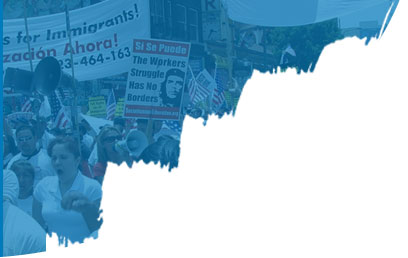
Trafficking at Special Events
On October 23, a man from New Haven, Connecticut was convicted of trafficking a woman and two underage girls at the 2020 Superbowl. He had brought the victims to Miami and, according to prosecutors, “emotionally, psychologically and financially coerced” them into having sex for money. This was apparently just one stop in a planned tour of U.S. cities that included Las Vegas, New Orleans and Chicago. It is not exactly clear what led to the man’s capture, only that it was a collaborative effort of the FBI, the Miami-Dade Police Department, and the South Florida Human Trafficking Task Force.
The case reignited a long-time debate over whether the Superbowl and other large-scale events attract human traffickers – most recently, the Formula Grand Prix now happening in the Austin, Texas area. Previous research has found that this is not the case, as stated not only by the Polaris Project and the International Human Trafficking Institute, but local anti-trafficking organizations as well. Their point: while organizers and law enforcement must take all necessary steps to curtail trafficking at such events, the vast majority of trafficking cases occur right under our noses as we are going about our daily lives. The previously mentioned arrest notwithstanding, evidence of the truth of this is born out in two other recent occurrences.
This past Friday, Vermont State Police officers and Homeland Security agents raided an apartment in Rutland, a bucolic city less than eight square miles and approximately sixteen thousand people that’s best known for a revitalized downtown area and its Halloween parade. The raid, which was predicated on suspicions of drug activity, also led to the discovery of three women behind a padlocked door.
Perhaps even more disturbing is when trafficking is discovered under innocuous-seeming circumstances. Also on Friday, Florida State Police pulled over a vehicle on the interstate for illegally tinted windows, only to find four frightened people, two with scars on their arms, in the back seat. They were later determined to be trafficking victims from Honduras. The vehicle was not some dilapidated van one sees in films about a kidnapping, but an ordinary-looking Toyota; moreover, it occurred in Sumter County, roughly an hour away from Disney World and home to the largest population of people over sixty-five in the US – hardly the circumstances most associate with human trafficking.
No doubt people will continue to debate whether sporting events create additional opportunities for traffickers, especially given the underreporting of sex crimes. Either way, these events do provide an excellent opportunity for advocates to increase public awareness. For example, in Atlanta ahead of the 2019 Superbowl, thousands of bars of soap were delivered to area hotels, each with a contact number for victims on the wrapper, and school buses with the words “One Bus = 50 Kids Sold Each Year For Sex in Georgia.” Ultimately, it is efforts like these that will increase awareness and reduce trafficking, not only on special occasions, but in our daily lives.
